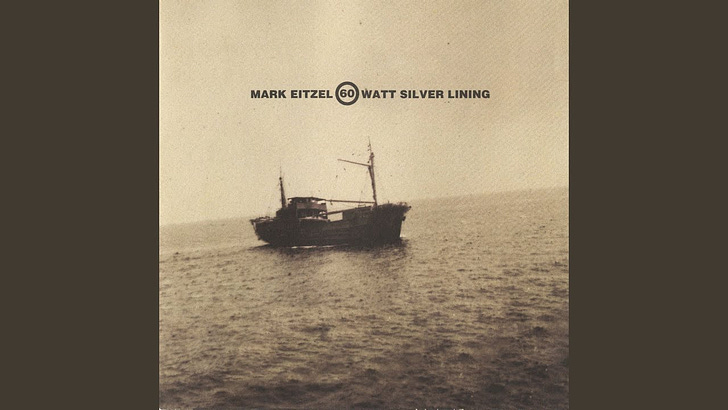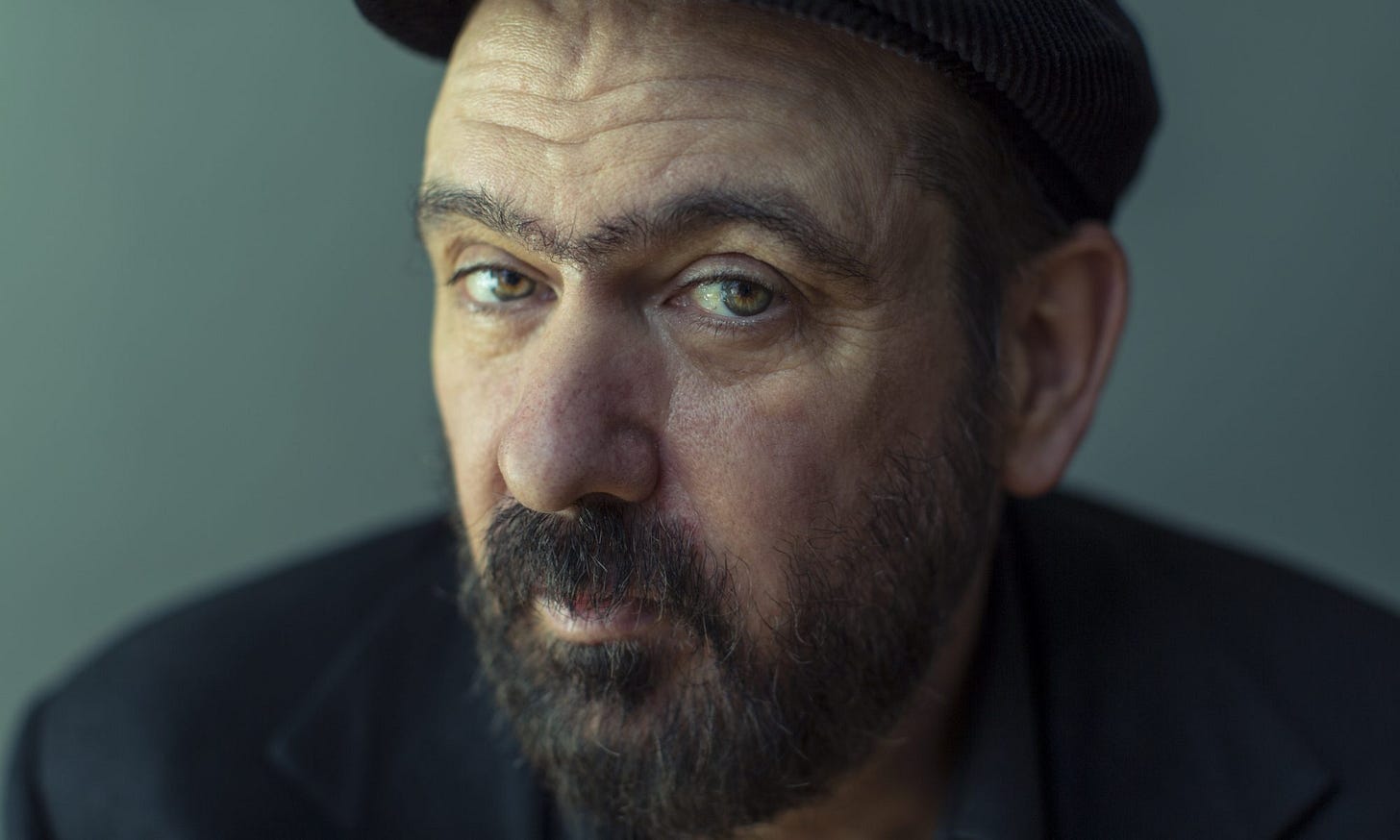And I Love It: American Music Club Edition
I'm making my already special Substack feature even more special.
For an extra special edition of my special Substack feature “And I Love It” I wanted to talk about a special album that I love. Tonight, it’s American Music Club’s Everclear.
It appears, by all available metrics, to not be a well-known fact that Mark Eitzel is one of our greatest living songwriters. This is on the one hand a strange thing, given the longstanding consistency of his brilliant work and on the other not so strange owing to what seems to be a special sort of anti-charisma that has systematically warded off mainstream acceptance. In 1991, Eitzel was deservedly named Rolling Stone's “Songwriter of the Year” — back when that was big casino. And the accompanying article was fascinating, lengthy and laudatory. It was apparently also lost to history: no internet search seems capable of bringing it back. What is that about? Just a digital hiccup? Did someone scrub it? Did the intelligentsia decide that greatness was in its midst, and then subsequently deem that it was too uncomfortable a greatness to embrace in perpetuity?
In any event, back to the notion of Eitzel's place in the pantheon: He is a crucial link in the chain between the Gershwins, Cole Porter, Hank Williams, Merle Haggard, King/Goffin, Smokey Robinson and all of the other great American songwriters who preceded and inspired him. As a lyricist there is no one more clever or capable of rendering a character sketch in a few choice words. Describing a figure of tragic, bourgeois sympathy, he once began a song: "Inside he's empty/ A head filled with shopping lists and politics." That was ‘96. That album was 60 Watt Silver Lining, which starts out with a (brilliant) cover of Carole King’s “No Easy Way Down,” not to put too fine a point on it.
The inarguable, intangible greatness of Mark Eitzel is a slippery thing to articulate. In many regards it is easier to think of Eitzel in terms of comedians, not only owing to the humorous strand which runs through his often tragic music, but also his simultaneous embodiment and revulsion towards show business. It is a posture reminiscent of Steve Allen, David Letterman and Ernie Kovacs. There are fewer, if any analogs, in popular music. Scott Walker and John Cale both embraced the popular form and the avant-garde, but have largely made them a separate concern. Lou Reed took no prisoners, but at least he allowed concert goers to be arrested by his overwhelming presence, when the shoe and Bob Quine fit.
Eitzel live is brilliantly and unfailingly astonishing and idiosyncratic — clapping along in a concert setting to one of his most famous songs, he tells the audience to please not follow suit: "You'll only screw it up." He is Dean Martin in reverse, replete with compelling onstage banter which both amuses and veritably dares the audience to walk away in the face of his puzzling grace.
In this manner, Eitzel upends the audience/performer dynamic. To see Eitzel live is not to survey what you think of his ability. Rather it is a survey of your ability as a listener. This is not "challenging," endurance-test music of the sort often orgasmically spoken about by critics regarding the arbitrary abusiveness of, say, The Swans. Eitzel's challenge is more subtle and ultimately more interesting. He bespeaks the frightening truths of our modern age — whether it be the internet or endless war — in a low crooner's voice: "Relax my love/ it's just the gates of hell swinging open." The very name American Music Club always ironically suggested the ever encroaching horrors of contemporary times — the generic, frightening, abject and impersonal. As GBV inevitably points out: The club is open.
By the time American Music Club delivered its first inarguable masterpiece Everclear in 1991, the band had released three other LPs replete with passion, poetry and intermittent transcendence. Each of these records — "Engine" "California" and "United Kingdom" are fascinating documents of nascent genius, and well worth owning. But "Everclear" is a different animal altogether. Rendered among the heights of the AIDS crisis in San Francisco, it is a perfectly calibrated nightmare tour of human misery refracted and redeemed through Eitzel's pitch perfect capacity for rendering human tragedy with a wry, journalistic remove. Tracks like "Rise" and "Sick of Food" are almost too painful exhortations to overcome the illness and fear that had hemorrhaged his adopted hometown.
“Why Won't You Stay?” and “Jesus' Hands” were still sadder acknowledgments of the inevitable casualties of an ongoing war on decency. Every bit as much as Larry Kramer's and Ryan Murphy’s The Normal Heart and Randy Shilts’ And the Band Played On, Everclear is a crucial document of an American catastrophe written from a bird's eye view, face down on the ground floor. A visionary admixture of Joy Division and Hank Williams, American Music Club’s Everclear is all killer hooks, painful punchlines and senseless loss. The single most poignant chronicle of the Bay Area during the height of the AIDS epidemic. A history that feels, alongside the artist, nearly forgotten.





Amen to all of this. American Music Club is one of the great unsung bands of the late 20th century. Everclear sits high on my list of best albums of the 1990s and Eitzel is one of my favorite songwriters. The band was amazing live, often delivering a truly harrowing, emotional experience with Eitzel on the knife's edge of shutting the whole thing down at any time.
I've also looked for the Rolling Stone piece without success a few times over the years. I suspect it still exists in print form somewhere in my parents' house, but I've never undertaken that exploration.
Beautiful, Elizabeth. I've only seen Eitzel live once, but it was memorable for all of the reasons you cite, and his work means a great deal to me. Thank you.